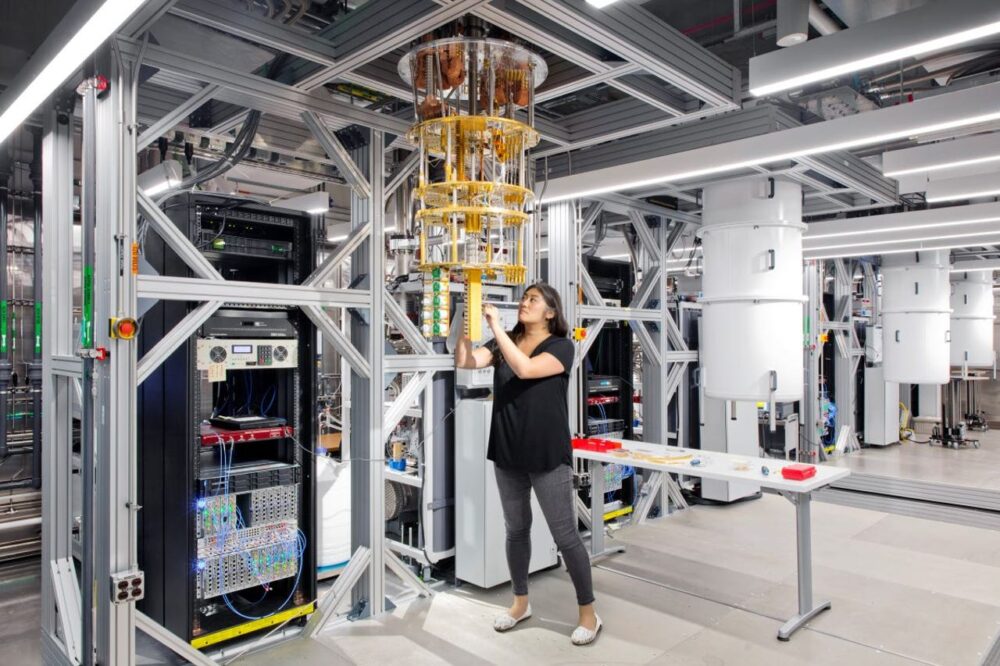Four researchers in the quantum computing space are putting their heads together to accelerate the pace of advancements.
Announced originally on Thursday, the researchers are working to accelerate quantum research by breaking down the traditional barriers between industry and academia.
The coalition consists of Xanadu, the University of Waterloo, the Unitary Foundation and Haiqu. It has joined Open Quantum Design’s (OQD) platform in order to introduce a new degree of open access to full-stack quantum computing technology.
Xanadu is a Canadian quantum computing company founded in 2016. It’s dedicated to building quantum computers that are useful and accessible to everyone. Meanwhile, The University of Waterloo is a renowned innovation hub. It’s home to the Institute for Quantum Computing and the Faculty of Science, both at the forefront of scientific research.
Additionally, the Unitary Foundation, a non-profit organization, plays a vital role in creating a robust quantum technology ecosystem and is recognized as a gold standard in open-source community development.
Furthermore, Haiqu, a San Francisco-based start-up, is advancing quantum computing by pushing the boundaries of quantum circuit execution to enable groundbreaking applications.
The proposed Open Quantum Design is an initiative fostering innovation through a global sandbox for quantum computing, providing open access to cutting-edge hardware, software, and collaborative resources.
OQD is advancing its mission by opening both the hardware and software intellectual property of its groundbreaking trapped-ion quantum computer to collaborators eager to join a global quantum sandbox.
Read more: IonQ inks research deal with United States Air Force for quantum computing
Read more: Arqit Quantum shares bounce 25% after 25:1 stock split
Open source platforms enable researchers to work on quantum solutions
This initiative provides unrestricted access to high-quality quantum computing hardware, software, and comprehensive training opportunities, driving innovation and building the future quantum workforce.
“Our open-source approach means that everything in the quantum computer will be accessible to the user, from the bare metal technical design to application programming interfaces,” said Roger Melko, co-founder of OQD, and faculty member at the University of Waterloo and the Perimeter Institute for Theoretical Physics.
These organizations gain access to OQD’s trapped-ion quantum computer repositories, including hardware specifications, fabrication standards, and design forums for quantum research and development, by joining its value proposition and open-source community.
OQD removes traditional barriers and focuses on solving complex problems, using its highly collaborative approach to accelerate innovation by uniting global quantum expertise.
This collaboration marks a milestone in open-source quantum computing and also aims to accelerate research, enhance educational opportunities, and broaden industry applications.
The partnership aims to drive advancements in several key areas. By creating open-source educational tools and resources, it will train the next generation of quantum scientists and engineers, building a quantum-ready workforce.
Open-source platforms will also accelerate research by enabling researchers worldwide to experiment, iterate, and innovate on quantum solutions without the usual constraints of proprietary software or hardware. The integration of open-source technology with industry partnerships could also hasten the adoption of quantum computing in fields like finance, pharmaceuticals, and cybersecurity, where quantum advantages are most pronounced.
Additionally, the open-source approach fosters community building, inviting diverse contributors to shape the evolution of quantum computing. The announcement has sparked enthusiasm across social platforms, with many highlighting the potential of this collaboration to make quantum computing more accessible and impactful.
Read more: HSBC teams with Quantinuum to futureproof digital gold
Read more: Airbus, BMW, Quantinuum use quantum computing to improve fuel cell efficiency
Multiple companies could benefit from expanded accessibility
The partnership aims to drive advancements across education, research, and industry, creating open-source tools to train future quantum scientists and engineers while enabling global researchers to innovate without proprietary constraints.
“We have found a way to leverage the collective global quantum workforce to scale quantum computing,” said Greg Dick, OQD’s CEO.
“By sharing resources, knowledge, and designs as a global community, we will accelerate the development of quantum technologies because what we are providing is an open platform to scale progress rapidly where people work, build, and innovate together.”
Companies like IBM (NYSE: IBM), Alphabet Inc (NASDAQ: GOOG), and D-Wave Quantum Inc (NYSE: QBTS), already leveraging quantum computing, stand to benefit from expanded accessibility, fostering collaboration and innovation. Enthusiasm for this initiative has surged on social platforms, with many recognizing its potential to revolutionize accessibility and applications in the quantum field.
.
Follow Joseph Morton on Twitter
joseph@mugglehead.com














